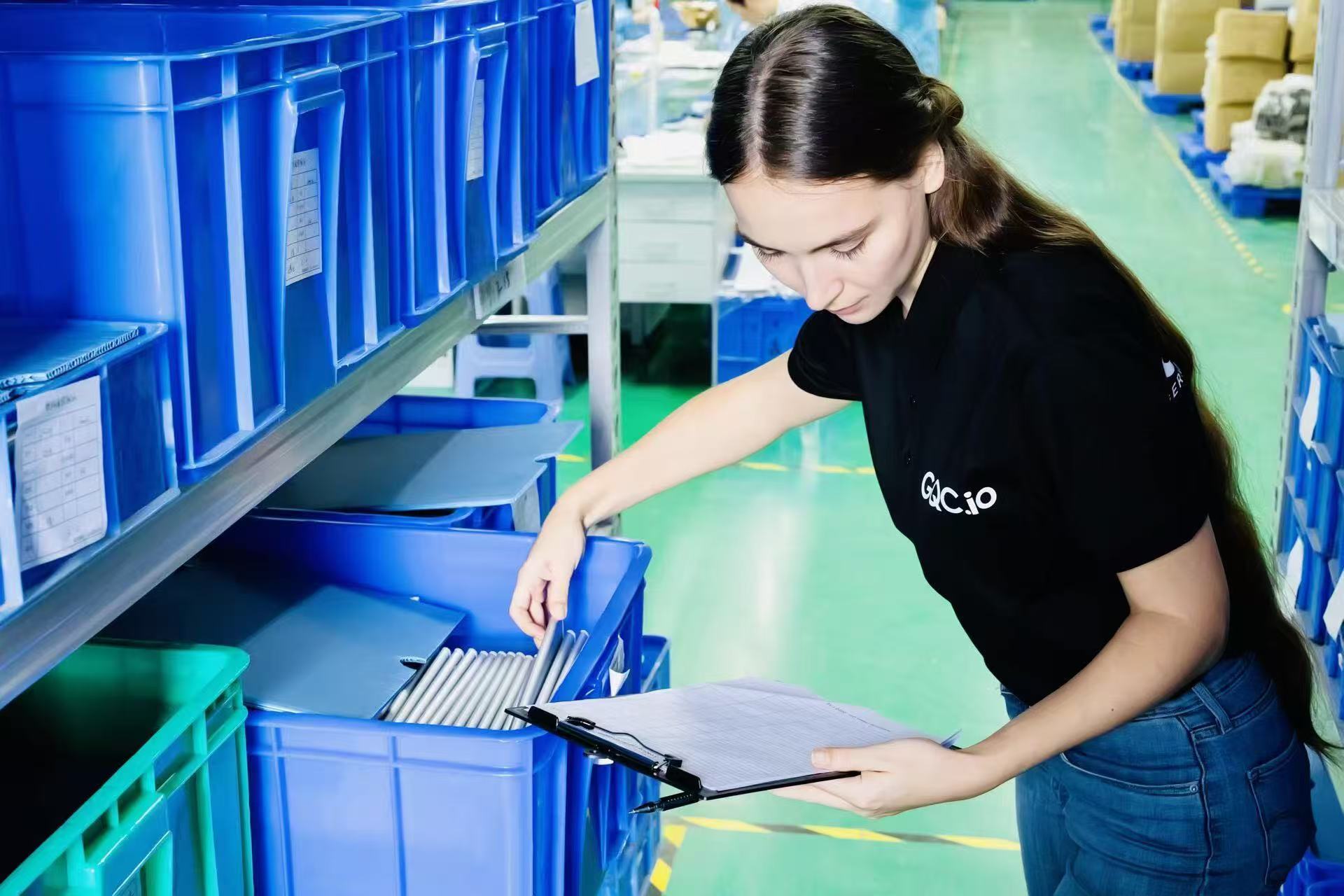A factory audit is a method of assessing the quality and capability of your suppliers and manufacturers. It is carried out on-site at the supplier's premises by an approved third-party auditor, who will evaluate whether the supplier meets the requirements of your business. These requirements normally include quality standards based on ISO 9001 as well as legal and normative compliance. By conducting a factory audit, you improve the reliability of your supply chain, reduce potential risks and increase confidence in your manufacturers or suppliers.
Factory audits should be performed before the production of your goods starts or even before placing an order to avoid risks. When working with suppliers over many years it is important to repeat audits every few years. Audits are often carried out to verify that suppliers meet specific standards set by brand owners in their production facilities. They may also be used to verify compliance with legal requirements such as labor laws, product safety standards, and environmental regulations. In addition to evaluating a supplier's current capabilities, factory audits can help identify areas for improvement, increase awareness about product safety issues and identify training needs among staff members.
3 most common types of Factory Audits:
Manufacturing Audit
A manufacturing audit is an inspection of a supplier's manufacturing facility to determine if it's capable of producing a product that meets your company's specifications. During the audit, inspectors also identify any existing problems that could disrupt production, as well as any potential problems that could cause disruptions in the future.
A manufacturing audit is vital to determining whether or not you should work with a particular supplier or manufacturer. These audits can identify and mitigate potential quality, operational, and ethical risks. This is accomplished by verifying that the supplier’s manufacturing facilities are suitable for producing your product and ensuring alignment with your company’s sourcing policies and your supplier’s policies. The audit also evaluates the competence of factory management. Here is a short overview of what the main points of a factory audit are:
- Factory profile (address, main products, and main export countries of the world, staff count)
- Management responsibility and quality management
- Official documents (business license, export license, BSCI, ISO9001 and other certificates)
- Social accountability and training of workers
- Production process and workflows
- Type, number, and conditions of different production machines
- Quality management procedures (IQC, IPQC, OQC) and SOPs
- Corrective action and customer complaints
- Reliability testing
- Warehouse procedures
Ethical Audit
Ethical audits are a great way to ensure your supply chain is keeping up with the requirements for social accountability. With pressure for all companies to maintain healthy, safe, and ethical work environments, an audit helps you stay on top of compliance, especially when it comes to labor practices and pay. There are several different international standards that can be used for ethical factory audits, and they can also be customized to fit the needs of each client. In addition to ensuring decent working conditions and human rights practices, ethical audits help determine whether your suppliers are following statutory requirements. Last but not least this kind of audit helps companies improve their brand image and customer loyalty.
Environmental Audit
Monitoring and improving the environmental impact of your supply chain is crucial to the long-term success of any business. Environmental factory audits help evaluate compliance with local laws and regulations as they relate to environmental protection and waste management allowing you to avoid significant penalties or even having to exit the market in a foreign country. By combining results from environmental audits with lab testing of the product, you can get a more complete picture of your supplier's production processes. Plus, it's a good way to verify that any policies or guidelines for environmental protection that your company has set are being followed.





